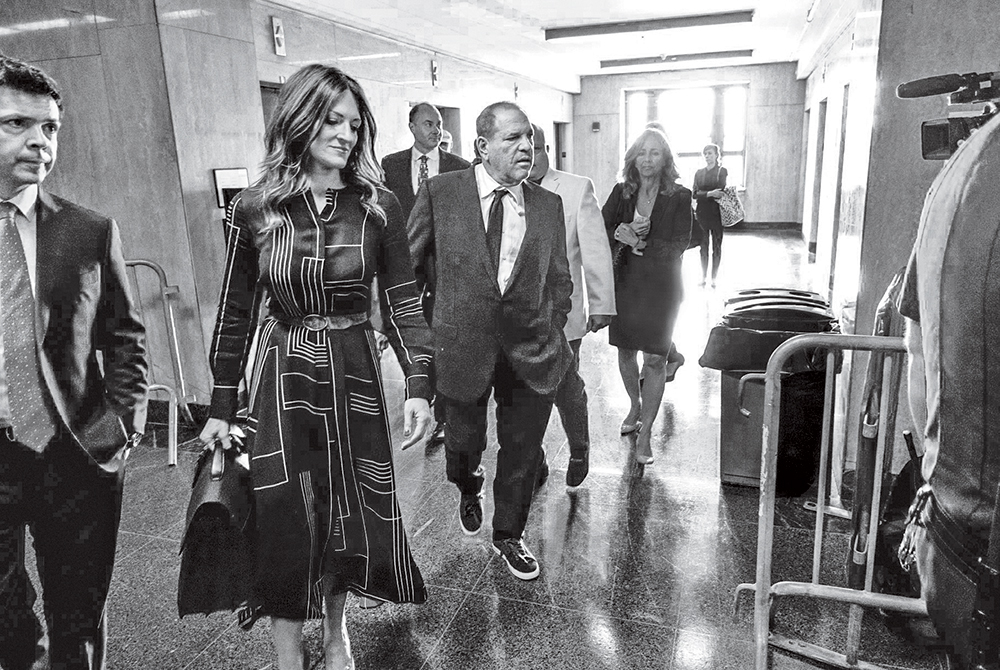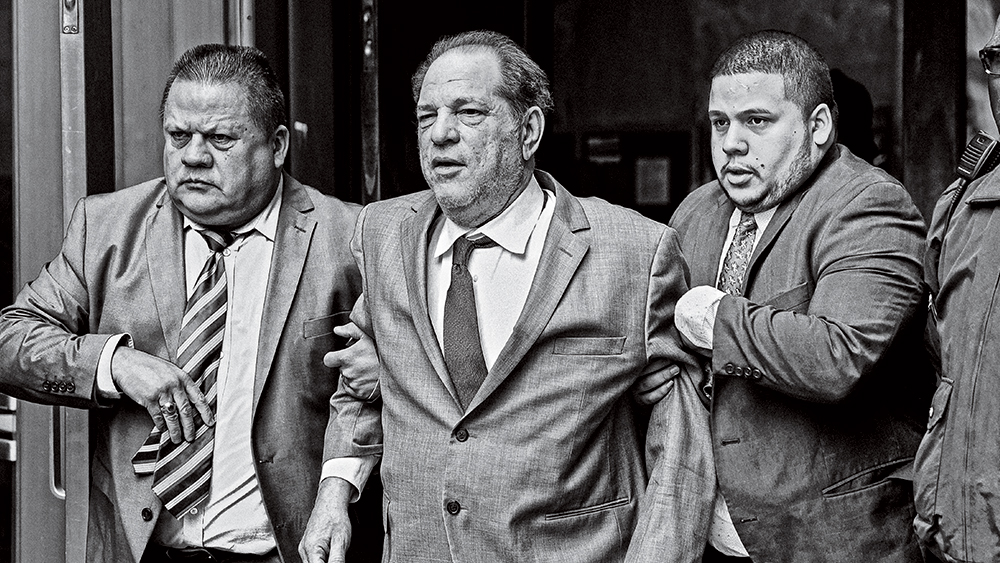Harvey Weinstein: What to Expect at the Rape Trial That Will Decide His Future
By Gene Maddaus
LOS ANGELES (Variety.com) – Harvey Weinstein will get out of a black SUV in lower Manhattan on Monday and walk into a media gauntlet. More than 150 journalists have obtained credentials to cover his rape trial, making for one of the biggest spectacles in memory.
On the 15th floor, Weinstein will take a seat in the courtroom of Justice James Burke, a former prosecutor who has denied motion after motion from a rotating cast of Weinstein defense lawyers to dismiss counts or exclude witnesses. Many of the more than 80 women who have accused Weinstein of sexual assault will be seated in the audience behind him. A few will be instantly recognizable — many more will not. Some will have been waiting decades for this moment.
Once the trial gets underway, his defense hopes to find jurors who will keep an open mind and can see their way to reasonable doubt. Even a hung jury would be a victory, and many defense lawyers who are following the case believe that outcome is within reach.
“I think this is going to be a very, very difficult case for the prosecution to win,” says Jeffery Greco, a criminal defense attorney who practices in New York and Los Angeles. “A lot of jurors are going to look at him and say, ‘I don’t doubt that what he did was morally wrong and reprehensible, but I don’t know that it was against their will.’ If that’s not believed beyond a reasonable doubt, they’re going to walk him.”
The jury will hear from six accusers, but the case will rest largely on the credibility of just two of them. Mimi Haleyi, a former production assistant on a Weinstein Co. show, alleges that the producer forcibly performed oral sex on her at his Soho home in 2006. The second woman, who remains unidentified, alleges that he raped her in a hotel room in 2013.
In addition to the two primary accusers, Weinstein will face four other witnesses, including “Sopranos” actor Annabella Sciorra, who have their own allegations against him. Sciorra alleges that Weinstein raped her in 1993 or 1994.
In pretrial motions, Weinstein’s then-attorney argued that Haleyi and the unidentified accuser maintained friendly relations with Weinstein long after the alleged assaults. The attorney, Benjamin Brafman, disclosed emails in which both women sought Weinstein’s help in landing jobs.
“Each woman who accuses the defendant of sexual assault increases exponentially the difficulty of defending the allegations in the indictment.”
Daniel Hochheiser, New York defense attorney
“I appreciate all you do for me, it shows,” the unidentified accuser wrote to Weinstein less than a month after the alleged rape, according to one of Brafman’s filings. Such exchanges went on for years, he alleged.
In 2017, the accuser allegedly wrote, “I love you, always do. But I hate feeling like a booty call.”
Brafman said his investigators had also talked to a close friend of the accuser who would testify that the accuser and Weinstein were in a consensual relationship. He said the friend recalled going with the accuser to a Weinstein Co. test screening just hours after the alleged rape, where both met with Weinstein. According to Brafman, the accuser didn’t mention the rape to her friend until years later, when she allegedly tried to enlist the friend in pursuing charges.
If jurors decide not to believe either of the two women, Weinstein will be acquitted. The challenge is getting jurors to tune everything else out.
“No matter what you know about him, he’s only charged with crimes related to these two women,” says Julie Rendelman, a defense attorney and former Brooklyn prosecutor. “If the jury focuses only on that, the prosecutor does have problems with their case.”
Weinstein’s lead lawyer, Donna Rotunno, specializes in sex crimes cases, and has built a reputation in Chicago for meticulous cross-examination of accusers. In interviews, she has pushed back on aspects of the #MeToo movement.
“My biggest issue is this notion that because women make a claim it must be true,” she tells Variety. “This notion that cross-examination is victim shaming … is obscene. Any claim has a right under our system of justice to be questioned and cross-examined. That doesn’t mean we’re horrible people. But I have a right to do my job.”
In addition to Sciorra, three other corroborating accusers — who have not yet been identified — will testify about incidents in 2004, 2005 and 2013. Their testimony will be used to buttress the main witnesses’ accounts, in much the way that Bill Cosby was tried and convicted in 2018.
Little is known about the supporting witnesses’ accounts, but their presence will make the defense’s job substantially harder.
“Each woman who accuses the defendant of sexual assault increases exponentially the difficulty of defending the allegations in the indictment,” says Daniel Hochheiser, a New York defense attorney. “A good defense lawyer can challenge the credibility of one complainant, two complainants. Once you get to three, four, five, it gets to the point you need a magician instead of a lawyer.”
The defense has indicated that it may try to go after the NYPD for alleged misconduct. The lead investigator, Det. Nicholas DiGaudio, was removed from the case after allegedly withholding exculpatory evidence from prosecutors.
The prosecution is not likely to call DiGaudio to the stand, and is instead expected to rely on the D.A.’s own investigators. The defense could call DiGaudio as its own witness, though it is unclear how far Burke would allow the defense to go. In November, the judge denied a defense request to obtain DiGaudio’s personnel file.
Rotunno and co-counsel Arthur Aidala could also call Weinstein to testify, though that would be a high-risk strategy. The defense is not expected to make a final decision on that until the trial is underway.
The other key strategic moment will be jury selection. The court is expected to call hundreds of prospective jurors, in hopes of finding people with lots of free time who know relatively little about the case. Jurors will be given a lengthy questionnaire in an effort to flag potential issues. For each panel of about 20 jurors, the prosecution and the defense will have about 15 minutes for questioning. The defense will aim to use that time to weed out people who seem ill disposed toward its client. It will be an uphill battle.
“He’ll come into the courtroom with a black mark on him. He’s already been vilified,” says Bennett Gershman, a law professor at Pace University and a former Manhattan prosecutor. “It’s an incredibly difficult challenge for the defense to overcome the public feeling — the venom that people feel about his conduct.”


